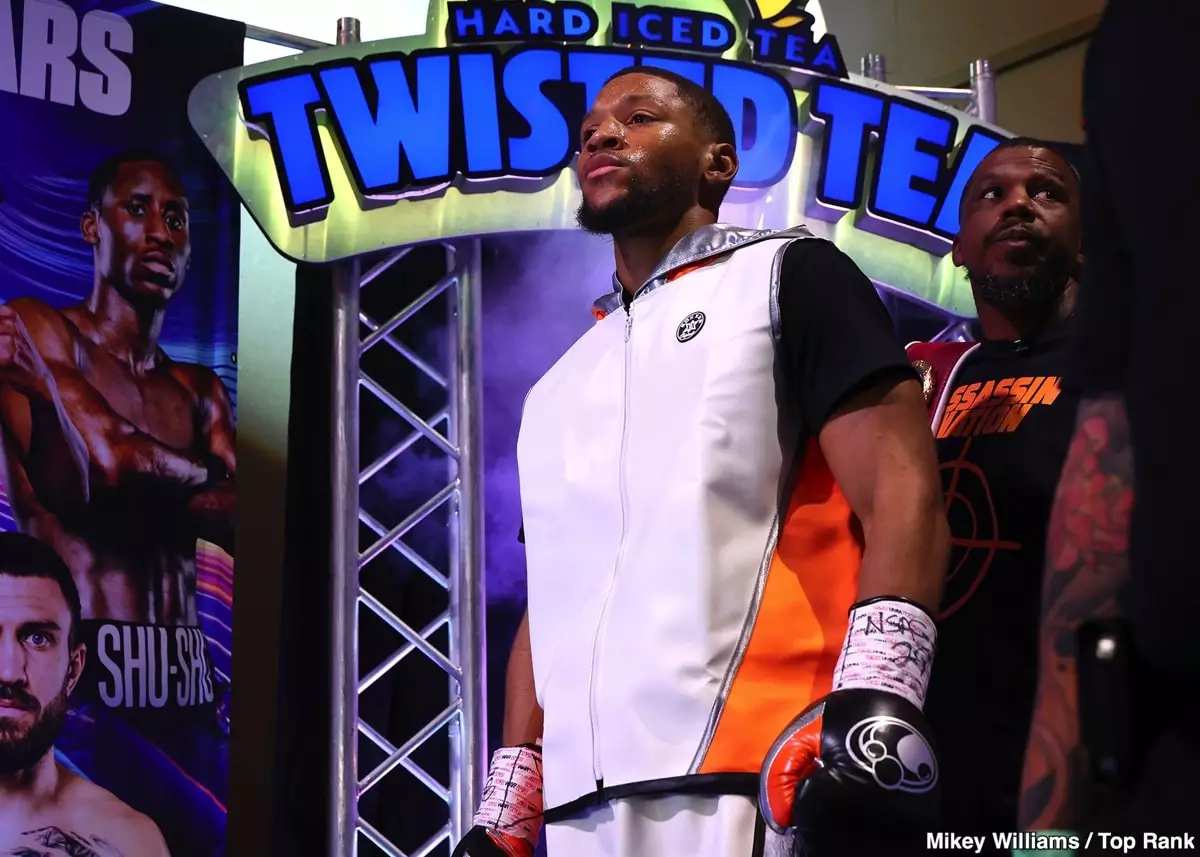The world of boxing is often rife with political maneuvering and financial disagreements, and the failed negotiations for a unification bout between WBO welterweight champion Brian Norman Jr. and IBF champion Jaron ‘Boots’ Ennis epitomizes these challenges. Trainer Derek ‘Bozy’ Ennis has positioned Norman Jr. as the scapegoat for why this highly anticipated clash fell apart last November in Philadelphia. In his view, the crux of the issue lies in Norman Jr.’s refusal to accept a $1.7 million offer from promoter Eddie Hearn unless it was increased to $2.2 million. But was it really just about the money, or were there deeper currents at play?
Burning the Financial Bridge
Norman Jr. and his father have indicated a willingness to fight for $1.7 million in Las Vegas, yet the Ennis camp insisted on Philadelphia as the site for the bout. Both sides must have understood the significance of a home advantage, but could this stubbornness be a form of strategic positioning? Critics have suggested that Ennis’s reluctance to take the fight on neutral territory signals a fear of the potential risks that Norman Jr. might bring into the ring. After all, Norman Jr. boasts a fighting style that some fans liken to Vergil Ortiz Jr., a name that sends shivers down the spines of many opponents.
Understanding the Stakes
In boxing, the negotiating table is as crucial as the ring itself. For the Ennis team, agreeing to terms that compromised their position—like moving to a neutral site or accepting a lesser offer—could have set a dangerous precedent. Yet, this scenario raises a philosophical question about the nature of competition. Should champions be willing to face each other under less-than-ideal conditions in order to unify titles, or does protecting one’s backyard outweigh the legacy implications of ducking a formidable opponent?
The Price of Ambition
The stark reality is that financial considerations in boxing negotiations often eclipse the purity of the sport itself. Bozy Ennis contends that Norman Jr. should have jumped at the chance to make a lucrative payday, especially considering he allegedly earned only $100,000 for a previous interim title fight against Giovani Santillian. However, such examples illustrate a fundamental flaw in Bozy’s argument. Fighting for a title is vastly different from seeking out a high-stakes match against another champion, and past earnings shouldn’t dictate a fighter’s worth when negotiating for a title fight.
Norman Jr.’s rejection of the $1.7 million offer can be understood as him valuing not just the monetary aspect, but also the potential consequences of a mismatch on his career trajectory. Would a loss to Ennis on such a high-profile stage negatively impact his future earnings? When the stakes are as high as they are in boxing, it’s reasonable for a fighter to prioritize not only the immediate payday but also the long-term implications of a loss.
Examining the Fallout
The inability to finalize the fight ultimately led Ennis to defend his IBF title against Karen Chukhadzhian, a match many deemed underwhelming. Ennis was criticized for his performance in that defense despite achieving a questionable victory. It leads us to wonder whether the looming shadow of the Norman Jr. matchup suppressed his focus and preparation. Did the negotiation fallout affect his mental approach to the fight, psychologically inhibiting him?
The realm of public perception plays a significant role in shaping a boxer’s legacy. If Boots Ennis is perceived as dodging a difficult opponent like Norman Jr., does that tarnish his reputation? The boxing community often welcomes the narratives spun by social media and fans, which can end up damaging a fighter’s marketability and prospects.
Bozy’s criticisms seem to miss an essential point: fighters are businesspersons too. Decisions are often made not just from a position of confidence but with an eye on the broader picture. The rationale behind how much a fighter is willing to accept is not just about immediate cash but securing a sustainable and respected future in the sport.
Toward a Transparent Future
Ultimately, the blame game initiated by Bozy Ennis adds a layer of drama but simplifies a situation that is far more complex. Boxing thrives on the matchups that don’t happen, creating narratives that fuel fan engagement. Still, as fans and observers of the sport, we should push for greater transparency in the negotiations that hold up the exciting bouts we crave.
In a sport where legacy is defined by monumental clashes, both fighters and promoters play pivotal roles in shaping outcomes. Perhaps it’s time for management teams like that of Ennis to rethink their approach to negotiations and consider that a little flexibility could be the difference between a potential payday and a fight that leaves fans wanting more.


Leave a Reply